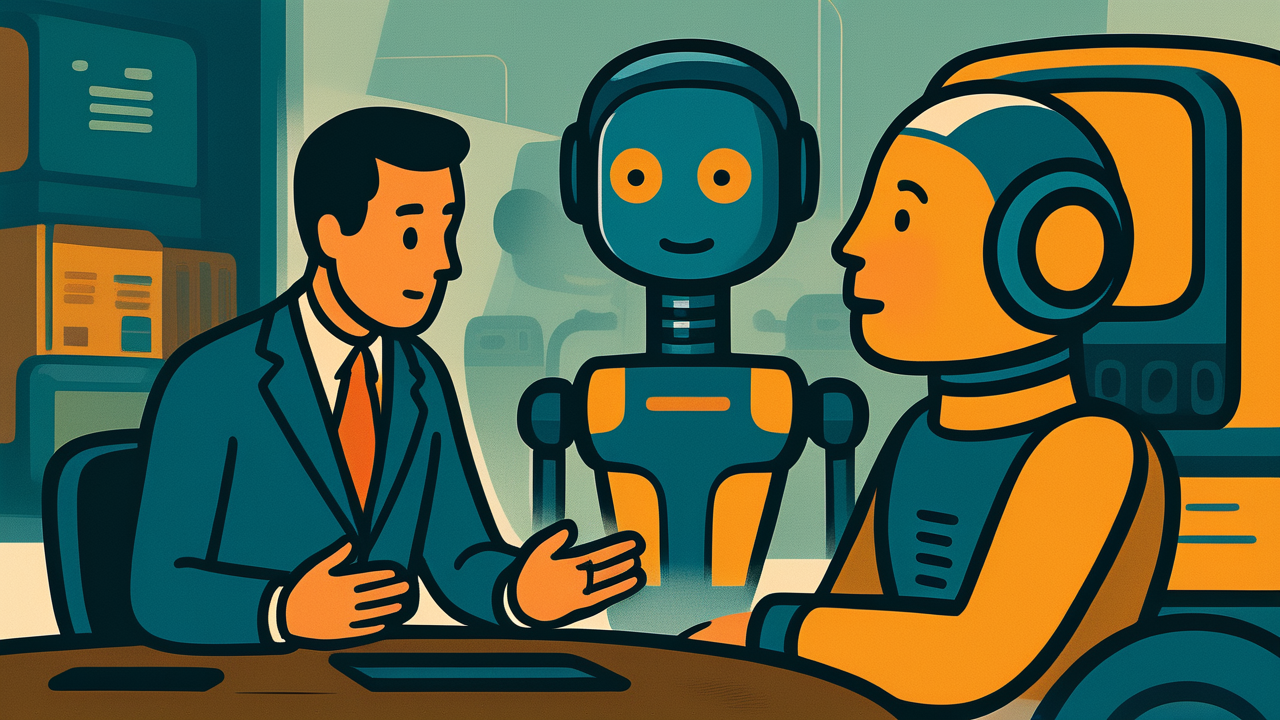[Disclaimer] This article is reconstructed based on information from external sources. Please verify the original source before referring to this content.
News Summary
The following content was published online. A translated summary is presented below. See the source for details.
In an illuminating podcast conversation, Logan Kilpatrick interviews Robby Stein, Google’s Vice President of Product, about the revolutionary AI capabilities being integrated into Google Search. The discussion reveals how Google is transforming its search engine from a simple query-response system into an intelligent assistant capable of understanding complex questions and providing nuanced answers. Stein explains the technical challenges and breakthroughs that enable billions of users worldwide to interact with Search in more natural, conversational ways. The podcast offers rare insights into how Google is reimagining the future of information discovery, making it possible for anyone to “ask anything” and receive thoughtful, contextual responses rather than just lists of links.
Source: Google Blog
Our Commentary
Background and Context

Remember when searching online meant typing exact keywords and hoping for the best? Google Search has come a long way since its launch in 1998. Back then, if you wanted to know about “dogs,” you’d type “dogs” and get a list of websites. Today’s announcement represents the biggest leap forward since those early days.
The evolution of search reflects how we naturally communicate. Instead of thinking in keywords, we think in questions and conversations. For years, search engines struggled to understand what we really meant when we typed something. If you searched “how tall,” the search engine had no idea if you meant the Eiffel Tower, your favorite celebrity, or the average giraffe. This new AI integration changes everything by understanding context and intent.
Expert Analysis
The conversation between Kilpatrick and Stein reveals something profound about the future of information access. By incorporating advanced AI, Google Search is becoming less like a library catalog and more like a knowledgeable friend who understands what you’re really asking.
What’s particularly impressive is the scale of this transformation. Enabling “billions of people” to use natural language search means the AI must understand questions in hundreds of languages, countless dialects, and infinite ways of phrasing things. This isn’t just about technology – it’s about making information truly accessible to everyone, regardless of how they express themselves.
The technical challenge here is enormous. The AI must process your question, understand the context, search through trillions of web pages, synthesize information, and present it in a way that makes sense – all in milliseconds. It’s like having a super-fast research assistant who’s read the entire internet and can explain anything in simple terms.
Additional Data and Fact Reinforcement
The impact of AI-powered search is already showing in the numbers. Recent studies indicate that over 15% of daily Google searches are questions that have never been asked before. This means the AI can’t just rely on memorized answers – it must truly understand and reason about new queries.
Consider how search behavior has changed: In 2010, the average search query was 2-3 words. Today, with voice search and AI understanding, people commonly use full sentences or even paragraphs to describe what they’re looking for. Mobile voice searches are 3x more likely to be conversational than typed searches, showing how natural language interaction is becoming the norm.
Google processes over 8.5 billion searches per day. With AI enhancement, each of these searches can now be more like a conversation than a simple lookup. This represents one of the largest-scale AI deployments in human history.
Related News
This development comes as tech companies race to integrate AI into their products. Microsoft has added AI to Bing, while startups like Perplexity AI are building search engines designed from the ground up for conversational queries. Meanwhile, ChatGPT and other language models have shown people what’s possible when computers truly understand natural language.
The timing is significant. Educational institutions are reporting that students increasingly expect search tools to understand complex, multi-part questions. Teachers are adapting their digital literacy curricula to include skills for conversing with AI search systems effectively.
Summary

The podcast with Robby Stein reveals that we’re witnessing a fundamental shift in how humans access information. Google Search is evolving from a tool that finds websites to an AI assistant that understands questions and provides answers. This transformation makes the world’s information more accessible to everyone, regardless of their technical skills or how they phrase their questions.
For students and young people, this means homework help, research, and learning will become more intuitive and conversational. Instead of learning special “search techniques,” you can simply ask questions the way you naturally think about them. The future of search isn’t about better keywords – it’s about better understanding.
Public Reaction
The announcement has sparked widespread discussion among educators, students, and tech enthusiasts. Many teachers express excitement about students being able to ask complex questions and receive comprehensive answers. Parents appreciate that their children can get homework help by asking questions in plain language.
However, some educators worry about students becoming too dependent on AI for answers rather than developing critical thinking skills. The general consensus is that these tools should supplement, not replace, traditional learning methods. Privacy advocates also remind users to be mindful of what personal information they share in their searches.
Frequently Asked Questions
Q: What makes this AI search different from regular Google Search?
A: The new AI understands complete questions and context, not just keywords. You can ask follow-up questions, request clarifications, and have a more natural conversation with the search engine.
Q: Will this replace traditional search results?
A: No, traditional search results will still be available. The AI features add a new layer of understanding and conversation on top of existing search capabilities.
Q: Is this available in all languages?
A: While the podcast mentions enabling “billions of people,” specific language availability wasn’t detailed. Google typically rolls out features gradually, starting with major languages and expanding over time.
Q: How does this affect student research and homework?
A: Students can now ask complex questions naturally, making research more intuitive. However, it’s still important to verify information, understand sources, and develop critical thinking skills alongside using AI tools.
Q: Is there a cost to use these new AI features?
A: The podcast didn’t mention pricing, but Google Search has traditionally been free for users. Advanced features might potentially have premium tiers, but basic AI-enhanced search is expected to remain free.


